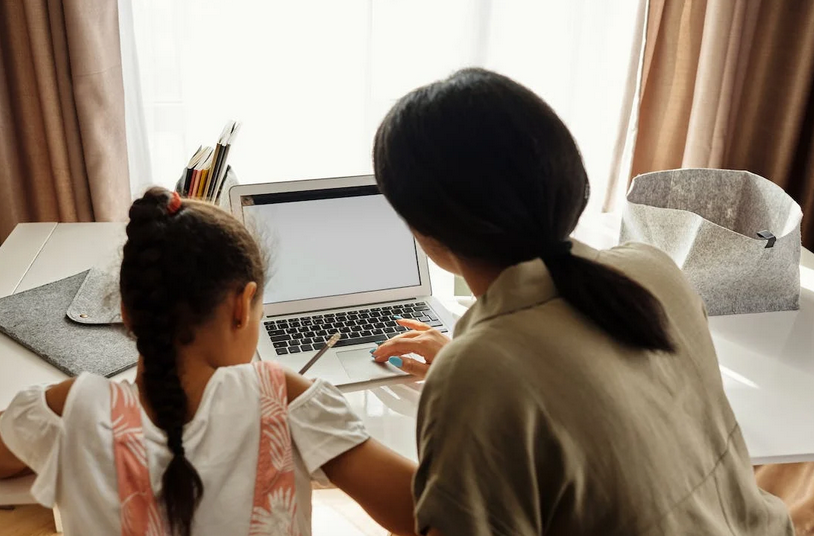It happens in homes everywhere: Screaming matches between you and your child over homework. Just saying the word to most kids, teens, and parents can throw them into a high-stress mode and suck the air out of the room. Unfortunately, homework is a fact of life—and so is the parent/child struggle that goes with it.
I loved holidays and vacations because they gave us a break from the crazy nagging and my kids’ groaning and moaning. But the calm didn’t last once they went back to school. The confusing homework missed assignments, and frustration came roaring back. Finding a way to reduce homework stress can help the family dynamic and even turn some homework into a more positive experience that teaches your child lifelong skills. Because let’s be honest when homework is too extensive and time-consuming — or not getting done — it can have a seriously negative impact on your entire family and the parent-child relationship.

Transformative COURSES & WORKSHOPS that make integrating peaceful living, health and wellness easy, fun and affordable.
Stress can also get in the way of a child’s ability to learn and retain information. If it does that, it makes school harder and will often bring the grades down and that, in turn, hurts their self-esteem. It doesn’t take long for a kid to start turning it all on himself. So take a good look at your child’s homework routine–and if there’s not one, let’s change that.
10 Tips to Reduce Homework Stress:
- Start young. Even kindergartners get homework, so kick it off with good habits from the beginning. The amount and difficulty of it will grow and I found that setting them up right away really helped later.
- Find the right time. After experimenting, I found that our kids did best when they had a routine. Come home from school, have a snack, and dive into the homework. Even when they had playdates, we stuck to this; they all settled in together. That way they could play later.
- Break it into bite-size pieces. Sometimes it’s just too overwhelming. That’s when I’d try to work with them to figure out the steps that needed to be taken. Then they could set smaller goals, take a break, and feel good that they had accomplished something.
- Give breaks. Kids cant just sit still for long periods of time. Kylie liked playing music or blowing bubbles on the deck in the break was helpful–she could move around, dance, and decide when to get back to work. This was good for all of us because it was her choice and took the power struggle out.
- Designate a space. Help your child set up a clear area dedicated to homework. Ours was our kitchen table because the kids liked to have me sit with them. As he got older my son moved his spot to another room by himself. Try to make it a clean space–messy areas just feel chaotic, and that makes it distracting and harder to stay focused
- Textbook tips. One of the things our schools did that I think is super smart was to give the kids a textbook to leave at home. They had others in the classroom. This meant less loss, a feeling of being more organized, and the added plus of being able to actually carry their backpacks as they got older! For those of you whose schools do not do this, you can suggest they do– and you could also just download a copy.
- Relax. If your kids get stressed out, see if you can give them any relaxation tips or download an app like Calm for them. The sound of rain or waves is often helpful–if nothing else teach them to take deep, slow breaths. This can help with homework, but it can also just help them with stress for the rest of their lives if they learn it young.
- Study skills. My kids didn’t seem to feel the need to study for tests. There’s good and bad in that. The good is they felt prepared from the classwork and previous homework; the bad is they felt so prepared they would say they had no homework. “Don’t you have to study for the test?!” So see if you can encourage your kids to review their work each night, so they aren’t overwhelmed by a test.
- Feed them. No matter your age, it’s really hard to concentrate or think if you’re hungry. Plus they can be super cranky and not know why. So definitely give them a snack. While healthy is good, throw in a treat as well. Mary Poppins was right about a little sugar.
- Encourage them. If you believe they can do it…they will too. And when they are frustrated or say they can’t do it, add this word: yet. “You can’t do it yet.” It’s the best little word.
Even once you set all this up and hopefully alleviate some of the homework stress, it doesn’t go away. Difficult homework assignments and the pressure of projects and tests can cause anxiety, frustration, and even anger for kids. It’s very easy to see it in teenagers in high school, less so to recognize it in the younger kids.
And you aren’t going to be perfect. I often struggled with whether I helped too much, nagged too much, or took their word when they said they didn’t have homework. I also didn’t want to be THAT parent who constantly emailed and called the teacher. It’s a fine line between being a strong advocate for your child and knowing when they need to take that role over themselves. As a general rule, homework that causes great anxiety defeats the goal of having a balanced, happy child. So if they are overwhelmed or anxious, speak up. Your child — and hopefully your child’s teacher — will appreciate it.

DANA BAKER-WILLIAMS
If you’re going to thrive in today’s crazy world, I believe you need to bring your whole self to the table: your personality, your sense of humor, and most importantly, your heart. All of these elements brought me to start Parenting In Real Life, my parent and teen coaching.
I’m a mom of two amazing kids, one of whom has struggled with ADHD, anxiety and depression. Watching this as a parent can be heartbreaking and feels singular. I had nowhere to turn and i was totally overwhelmed. When we finally put the pieces together and got our daughter some help, everything changed for her. But I still didn’t have someone who could teach me how to parent more effectively. It was trial and error on the emotional dysregulation, the panic attacks, and the lack of executive functioning. There was no handbook.
I vowed then that other parents should NOT have to be that scared, overwhelmed, and alone. And kids and teens shouldn’t feel alone, stupid, disconnected or “less than”. Now I am in the position to help parents and teens alike. I help other 2e families find calm in the chaos, connect with their kids, and bring peace and joy back into the family dynamic. I give parents the tools and support they need to communicate and parent more effectively. Simple shifts and techniques will allow you to parent with confidence and handle the challenges with grace and set your kids up for success with life skills, resilience, and self-advocacy.
Bring the joy back in your family, book a call now. https://www.parentinginreallife.org/bookings-checkout/book-a-free-consult/book



